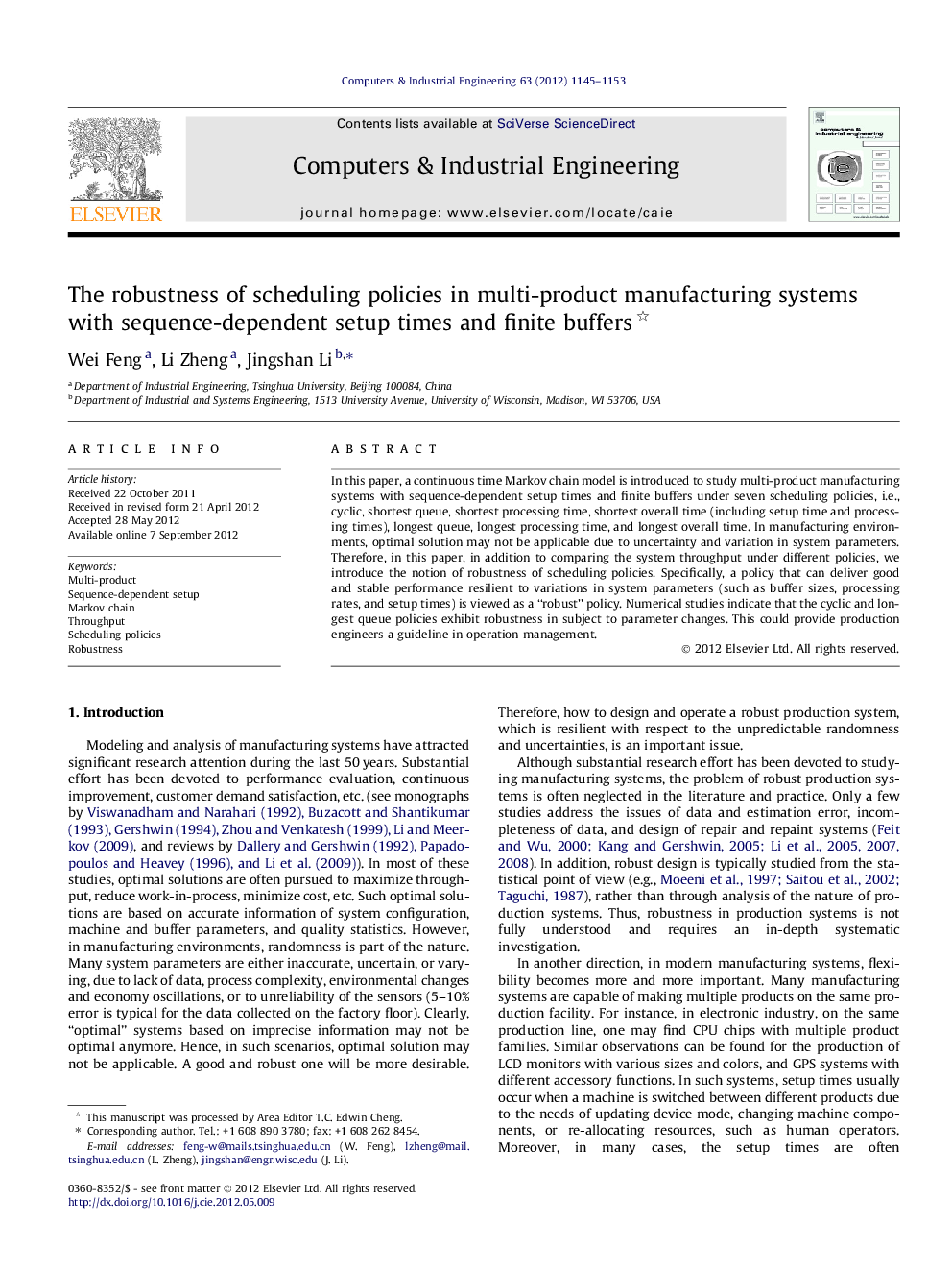| Article ID | Journal | Published Year | Pages | File Type |
|---|---|---|---|---|
| 1134329 | Computers & Industrial Engineering | 2012 | 9 Pages |
In this paper, a continuous time Markov chain model is introduced to study multi-product manufacturing systems with sequence-dependent setup times and finite buffers under seven scheduling policies, i.e., cyclic, shortest queue, shortest processing time, shortest overall time (including setup time and processing times), longest queue, longest processing time, and longest overall time. In manufacturing environments, optimal solution may not be applicable due to uncertainty and variation in system parameters. Therefore, in this paper, in addition to comparing the system throughput under different policies, we introduce the notion of robustness of scheduling policies. Specifically, a policy that can deliver good and stable performance resilient to variations in system parameters (such as buffer sizes, processing rates, and setup times) is viewed as a “robust” policy. Numerical studies indicate that the cyclic and longest queue policies exhibit robustness in subject to parameter changes. This could provide production engineers a guideline in operation management.
► A Markov chain model is developed to study the robustness of scheduling policies. ► A robust policy can deliver a good and stable performance resilient to variations. ► Seven different scheduling policies have been investigated. ► Extensive experiments are carried out to study robustness in different scenarios. ► The results indicate that the cyclic and longest queue policies exhibit robustness.
